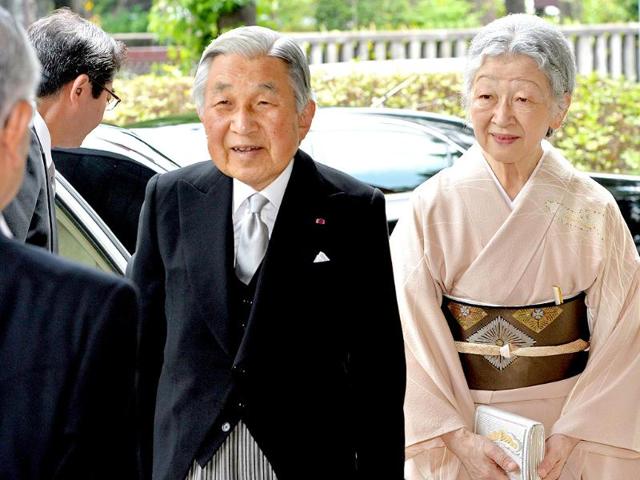Japan's emperor wears geopolitics' new clothes
Tokyo's official is that the visit of the Emperor of Japan has nothing to do with politics and nothing to do with the Asian balance of power.
Tokyo's official is that the visit of the Emperor of Japan has nothing to do with politics and nothing to do with the Asian balance of power.

"This should not be interpreted as an attempt to counter China", said Sakutaro Tanino, former Japanese ambassador to India, told the Indian media. Yet no one quite believes it.
New Delhi has been trying to get the Heisei Emperor to visit since the mid-1990s says a Japanese diplomat. Four years ago, says Tanino, planning for a visit was scrapped because of the Kobe earthquake and poor imperial health.
In the 1990s such a trip would have been about a new post-Cold War relationship and enlarging economic relations beyond Maruti Suzuki. Today the difficulties both have had with China is the inevitable backdrop to the imperial visit.
But most argue Tokyo and New Delhi are playing a much larger game: using the imperial couple to help solidify an Indo-Japanese relationship that is still all potential and minimal reality.
First, the visit will impress on the average Japanese that there is something afoot with India. "The Japanese people respect the emperor. His visit to India would convince the Japanese of the importance of India for Japan," says Takenori Horimoto, South Asian expert from Shobi University. An Indian diplomat said, "Every janitor in Japan will know of this visit."
Second, the visit signals to other countries that Indo-Japan ties are in turbo mode. "This is about Japan and India recognizing shared interests as trading economies, as maritime powers and as democracies. Japan has slowly but clearly recognized India's long-term potential," says Rory Medcalf of Australia's Lowy Institute. Prime Minister Manmohan Singh uses the adjective "transformational" to describe relations only with the US and Japan. Singh and his Japanese counterpart, Shinzo Abe, both see the relationship as necessary to their visions of national rejuvenation.
Third, the visit signals both countries believe they share a strategic space. Abe is credited with the phrase "Indo-Pacific" and its implication that the Indian and Pacific Oceans are one strategic zone. Singh endorsed in May when he spoke of Japan being a "natural and indispensable partner" in a region "washed by the Pacific and Indian Oceans." Medcalf believes the imperial visit "confirms that Japan now sees its region of economic and security interest in very Indo-Pacific terms."
Inevitably, this will be seen as part of an attempt to create an alliance against China, something that will be reinforced when India concludes an agreement to buy Japan's first postwar arms export, a SU-2 seaplane, later this year and Abe is confirmed as India's Republic Day chief guest next January. "The Abe cabinet is trying to use the emperor politically or geopolitically to signal that all Asian countries are friendly to us except for China and the Koreas," says Koichiro Matsuda, international relations professor at Rikkyo University. It is a message that New Delhi will not seek to contradict.



